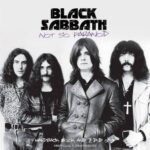Before he became the mastermind behind Led Zeppelin, Jimmy Page was already a quiet giant in the music world. As one of London’s most in-demand session guitarists in the early ’60s, he played on countless records, including The Who’s “I Can’t Explain” and Donovan’s “Hurdy Gurdy Man.” Working from the shadows, Page helped shape the British music scene before stepping into the spotlight.
In 1968, everything changed when he formed Led Zeppelin. With a guitar in hand and a violin bow in the other, Page shattered conventions. Drawing from blues, psychedelia, and Eastern music, he reimagined what the electric guitar could be. His riffs—on tracks like “Whole Lotta Love,” “Black Dog,” and the thunderous “Kashmir”—are now etched into the DNA of rock music. And his solo on “Stairway to Heaven”? Still hailed as one of the greatest ever recorded.
But Page wasn’t just a performer—he was Zeppelin’s producer, too. In an era before digital tools, he layered sound with obsessive precision, crafting a massive, immersive sonic experience. That legendary wall of sound? Pure Page.
After Zeppelin disbanded following drummer John Bonham’s death in 1980, Page remained a restless creator. He collaborated with artists like David Coverdale and The Black Crowes, always pushing boundaries. Meanwhile, fans have long hoped for a new album, but Page has focused on preserving and remastering Zeppelin’s legacy with the care of a true archivist.
Jimmy Page is more than a guitar god. He’s a sonic architect, a mystical presence, and the visionary behind one of the greatest rock bands in history. His influence is immeasurable—and his riffs will echo through the ages.










